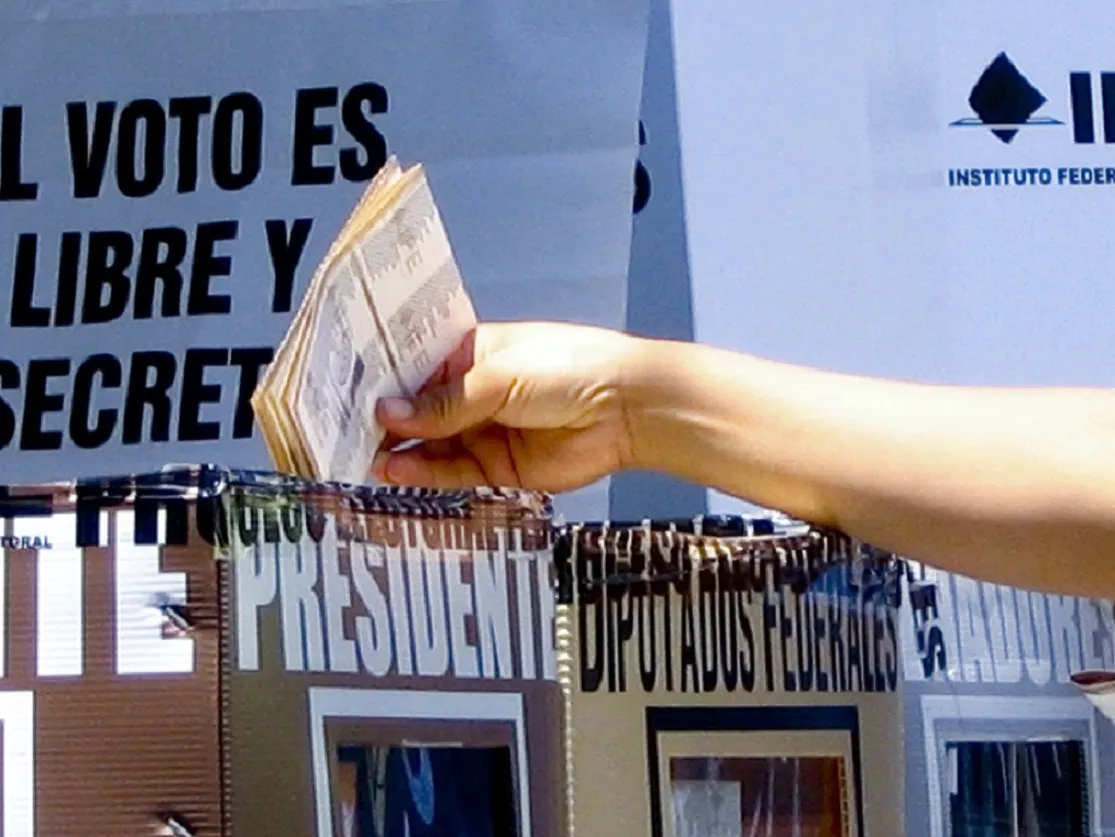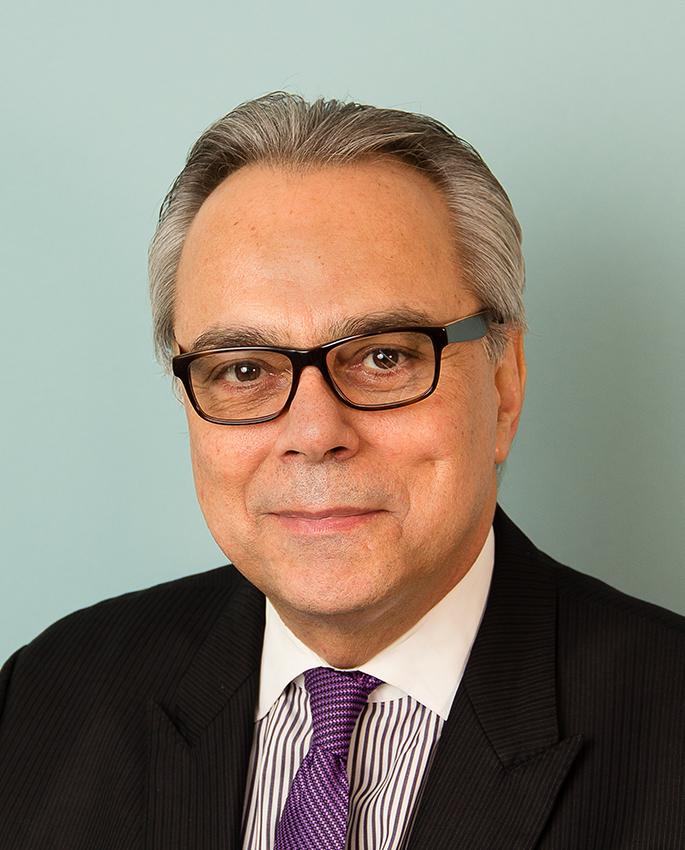Latin America’s super election cycle is wide open

Latin America is approaching one of its most important electoral marathons in recent decades.
Este articulo se encuentra disponible en Castellano.
Between November 2017 and December 2018, eight countries in the region will hold presidential elections: two in November 2017 (Chile and Honduras), and six in 2018 (Costa Rica, February 4; Paraguay, April 22; Colombia, May 27; Mexico, July 1; Brazil, October 7; and possibly Venezuela, at the end of the year).
If we add the six presidential elections to be held in 2019 (Bolivia, Argentina, Uruguay, El Salvador, Panama, and Guatemala), 14 of the 18 Latin American countries will hold their presidential elections within a two-year period. This does not count the number of important legislative and gubernatorial races that also serve as bellwethers of the region’s political mood in this new era of populism and illiberalism.
These elections will be held in an economic context of low growth, with the International Monetary Fund (IMF) estimating growth rates of 1.7 percent and 1.9 percent in 2017 and 2018 respectively. These projections can be interpreted in two ways. The good news is that the region could be leaving behind two consecutive years of negative growth (and six of a steady slowdown). The bad news is that these low growth rates jeopardize the important social gains achieved over the past decade in terms of employment, inequality, and poverty reduction.
Moreover, this super electoral cycle occurs at a time when, according to the Latin American Public Opinion Project (LAPOP), support for democracy has seen a decline in the region (from 67 percent in 2014 to 56 percent in 2017). This reduction is accompanied by a low level of confidence in elections and in the institutions of representative democracy, particularly political parties.
TRENDS
From a comparative regional perspective, the eight elections that will be held over the next 14 months occur in the context of a series of trends.
- Owing to many current presidents’ low levels of popularity, it is likely that parties currently in power will lose office. Immediate re-election is a possibility only in the case of Honduras, where the current president, Juan Orlando Hernández, will seek a second term, and perhaps in Venezuela (if the election is held, and if Maduro decides to run again). At least one former president, Sebastián Piñera in Chile, is likely to return to power, while former president of Brazil, Lula da Silva, faces an uphill climb in the wake of corruption charges.
- These familiar faces will be combined with new faces, in some cases independent candidates, as could be the case of Jair Bolsonaro in Brazil (a former military officer with a strong populist discourse). Colombia has more than 30 parties and independent candidates, and in Mexico, to date, there are 40 independent candidates pre-registered with the electoral authority (INE).
- While both South and Central American countries seem to prefer pro-market candidates, the fate of the two largest economies of the region, Brazil and Mexico, remain ambiguous. In Mexico, center-left candidate Andrés Manuel López Obrador, the leader and founder of the National Regeneration Movement, Morena, is leading in the polls, generating economic uncertainties.
- The bloc of ALBA member countries (Bolivarian Alliance for the Peoples of Our America), in the best case, will maintain their current levels of economic activity, without growth on the horizon. The 2018 Venezuelan election and the 2019 Bolivian election (in which President Evo Morales is trying to secure authorization for a fourth successive term) will be key for measuring the strength of 21st century socialism. It is noteworthy how the current president of Ecuador, Lenín Moreno, has been distancing himself from his predecessor, Rafael Correa, which could provoke a realignment of Ecuador outside of ALBA and perhaps closer to the Pacific Alliance.
- Brazil, Chile, Colombia and Costa Rica provide for a second round in presidential elections. In most of these four cases, it is likely that a second round will be required to elect the president, with the possibility of the first-round winner losing in the second round.
- In the majority of the eight elections, the high level of fragmentation of the traditional political parties and the emergence of a larger number of independent candidates will no doubt mean that the president-elect will not have his or her majority in the Congress, which suggests governing challenges.
- The serious corruption scandals throughout the region, underscored by the Lava Jato (“Car Wash”) and Odebrecht scandals in Brazil—related to high levels of financing required to run campaigns, along with high levels of citizen insecurity—are two issues that will be very present in almost all the election campaigns.
- In some of the elections, there is concern about the level of voter participation, especially in Chile (because of a change in the voting system) and Colombia (historically the country with the highest levels of abstention in the region).
- Because of the abrupt end of Dilma Rousseff’s presidency in Brazil (removed for “high crimes and misdemeanors”) and the March 2018 conclusion of President Michelle Bachelet’s term in Chile, it is possible that, for the first time in many years, there will be no woman president in Latin America, as of April 2018.
IMPLICATIONS
The result of this electoral marathon will define the characteristics, direction, and intensity of the political change to be experienced by the region in the next few years. This will have a major impact not only within the countries but also in the process of regional integration. At the same time, this set of elections will be key to assessing the quality of democracy and integrity of these processes in Latin America.
These presidential elections are even more relevant given that they will coincide with the midterm legislative elections in the United States, and with the expected elevation of a new president in Cuba to replace Raúl Castro.
How strong populist sentiments will be in these elections is not yet clear, though surveys suggest voters are fed up with the status quo. It seems clear, however, that the middle classes will play a key role across the board. The middle classes—which have higher levels of consumption, and are more empowered and more connected through social networks—have high expectations. Meanwhile, low levels of economic growth beset the region.
The tension between these and other trends will have a major impact on election outcomes across the region, all of which are producing a generalized sense of distrust of elites (political, business and union):
- the new middle class agenda and the sense of frustration and fear of losing what has been gained, or not being able to continue consuming and progressing at the same pace as in recent years;
- dissatisfaction over the poor quality of public services;
- high rates of citizen insecurity;
- serious corruption scandals; and
- the crisis of representation.
Moisés Naím, who calls the middle class the “political hurricane” that is changing the world, has written that while the political consequences of middle class electoral behavior are unforeseeable, their rejection of “more of the same” makes inevitable political re-accommodations that, until recently, were hardly imaginable.
We’ve seen dramatic political re-accommodations, in different forms, in recent elections in the United States and across Europe. Unimaginable changes likely lie ahead in Latin America, too, as it enters an electoral marathon over the next few years.
Note:This Commentary was originally featured in Brookings Institution blog. On 29 September 2017, International IDEA and the Brookings Institution co-hosted a full-day workshop convening high-level experts from Latin American embassies, the U.S. government, academia, and civil society to discuss current trends in Latin American democracy. The moderators of each session have authored blog pieces highlighting the main points of consensus, as well as ongoing challenges, related to their session theme. This blog by Dr Daniel Zovatto is an outcome of the discussions held during the panel on Latin American Electoral Cycle that he moderated.




